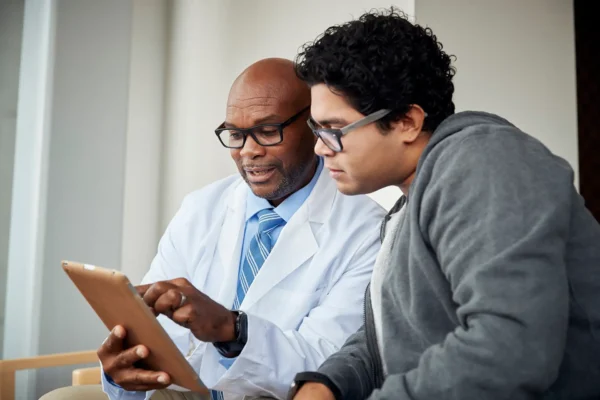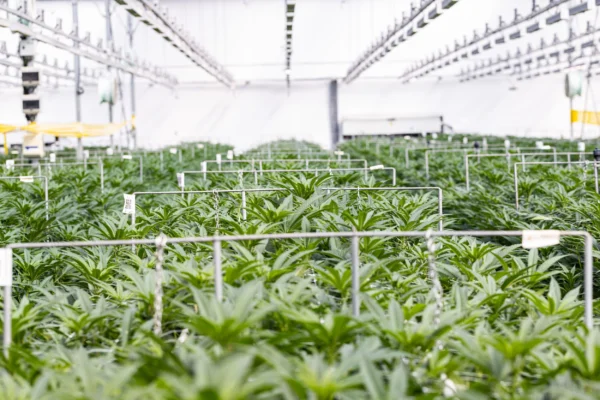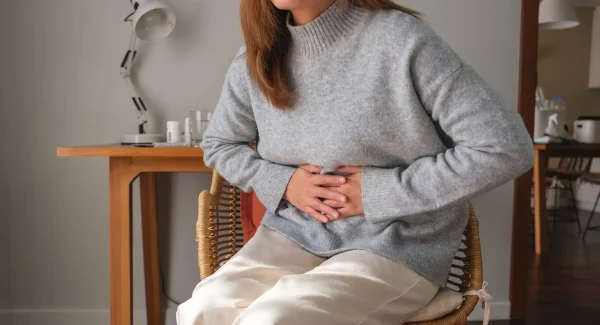Endometriosis is a painful, chronic condition affecting millions of women worldwide. It occurs when tissue similar to the lining of the uterus (endometrium) grows outside the uterus. This tissue can grow on the ovaries, fallopian tubes, and other areas in the pelvis, causing inflammation and significant discomfort. It is estimated that approximately 10% of women of reproductive age are affected, making it one of the most common gynaecological conditions.
Common Endometriosis Symptoms
The most common symptoms of endometriosis include:
- Severe menstrual cramps (dysmenorrhea): Pain that can be debilitating and interfere with daily activities.
- Chronic pelvic pain: Pain that occurs outside of the menstrual cycle.
- Pain during or after sex (dyspareunia)
- Painful bowel movements or urination
- Heavy menstrual bleeding
- Infertility
- Fatigue
- Gastrointestinal issues: Including bloating, constipation, or diarrhoea.
Endometriosis can also have a significant impact on mental health, increasing the risk of depression, anxiety, and other pain disorders.
The Challenges of Diagnosing and Treating Endometriosis
Unfortunately, endometriosis is often difficult to diagnose. It can take an average of 4 to 11 years from the onset of symptoms to receive a proper diagnosis. In the UK, this has not improved in recent years, with numbers suggesting that delays in diagnosis are continuing due to lengthy waiting lists to see a gynaecologist and other factors. In response, the Royal College of Obstetricians and Gynaecologists has recently released a report to help improve the care that women receive. The National Institute for Health and Care Excellence has similarly updated its guidance, aiming to improve diagnosis.
Current Treatment Options
Treatments for endometriosis may seek to either affect hormone levels, remove the endometrial deposits via surgery, or address symptoms. These may include:
- Hormonal therapies to manage estrogen levels.
- Laparoscopic surgery to remove endometrial tissue.
- Pain medications like over-the-counter NSAIDs (non-steroidal anti-inflammatory drugs) or prescription opioids for severe pain.
- Alternative treatments, including transcutaneous electrical nerve stimulation
Why a New Approach is Needed
Many current treatments come with limitations:
- Hormonal therapies may come with side effects or are not appropriate for women with certain pre-existing medical conditions.
- Surgery is invasive and may not provide long-term relief.
- Pain medications like opioids carry the risk of dependence, tolerance, and other adverse effects.
This is why many women with endometriosis are searching for alternative options to help them take control of their symptoms. Research suggests a significant number are turning to self-management strategies, including the use of cannabis.
The Endocannabinoid System and Endometriosis: A Potential Link
Emerging research suggests a possible connection between the endocannabinoid system (ECS) and endometriosis. The ECS is a complex network in the body that helps regulate pain, inflammation, mood, and other vital functions.
- What is the ECS? The ECS involves cannabinoid receptors (like CB1 and CB2), endocannabinoids (naturally produced by the body), and enzymes.
- The link to endometriosis: Studies have found that women with endometriosis may have altered levels of endocannabinoids and changes in cannabinoid receptor expression in endometrial lesions. This suggests the ECS might be involved in the development or progression of the disease.
Medical Cannabis: A Growing Interest Among Endometriosis Patients
While clinical trials specifically on cannabis for endometriosis are still limited, many women are reporting positive experiences using it to manage their symptoms. A recent cross-sectional online survey conducted in German-speaking countries (Germany, Austria, and Switzerland) aimed to understand how women with endometriosis are using cannabis. Over 900 women with a confirmed endometriosis diagnosis participated.
Key Findings
- Delayed diagnosis: It took an average of 9 years for participants to receive an endometriosis diagnosis.
- Significant impact on quality of life: Over 80% of women reported that endometriosis severely affected their mood, relationships, work, and daily activities.
- High prevalence of cannabis use: 17% of participants reported using cannabis or cannabis-related products to manage symptoms.
- Methods of use: Smoking was the most common method, followed by edibles and vaping.
- Symptom changes: Participants reported changes in sleep (91%), menstrual pain (90%), and non-menstrual pelvic pain (80%).
- Reduced medication use: Many patients reported a decrease in their reliance on other pain medications.
What do these findings mean?
This survey adds to the growing body of evidence on the use of cannabis by women in experiencing endometriosis-related pain and other symptoms. Whilst these findings are not supported by evidence that is rigorous enough to suggest that medical cannabis is an appropriate first-line option for women experiencing endometriosis, it does support the need for future research using randomised controlled trials.
Important Considerations
- Limited clinical evidence: While anecdotal reports are promising, more rigorous clinical trials are needed to confirm the effectiveness and safety of cannabis for endometriosis.
- Individual variability: The effects of cannabis can vary from person to person. What works for one individual may not work for another.
- Legal status: The legality of medical cannabis varies by region. Always be aware of the laws in your area. In the UK medical cannabis is legal when prescribed by a clinician for individuals who have not responded to first-line therapies.
- Potential side effects: Cannabis use can have side effects, including dry mouth, dizziness, and changes in appetite or mood.
The Future of Medical Cannabis for Endometriosis
The research into cannabis for endometriosis is still in its early stages, but the initial findings are encouraging. There is a clear need for more effective and well-tolerated treatments for this debilitating condition.
Endometriosis and Curaleaf Clinic
If you have endometriosis and are interested in exploring medical cannabis, it is essential to speak with a healthcare professional to understand if you are eligible. They can also help patients understand the potential benefits and risks, discuss appropriate dosages and methods of use, and monitor their progress. If you are interested in exploring your suitability for a consultation further, you can sign up here.









